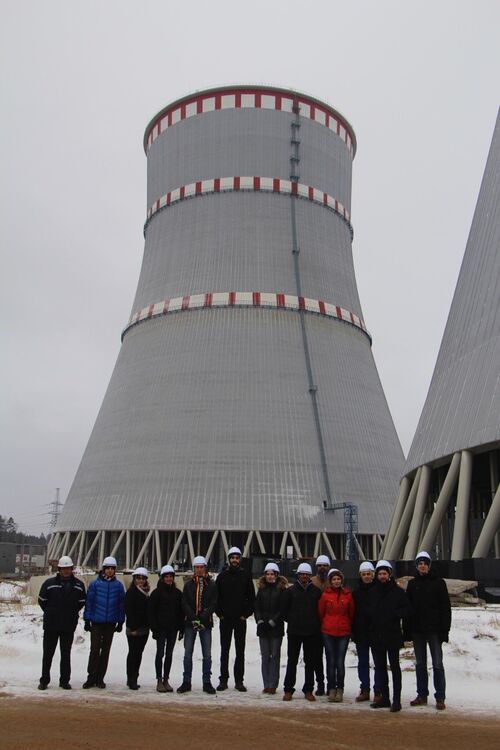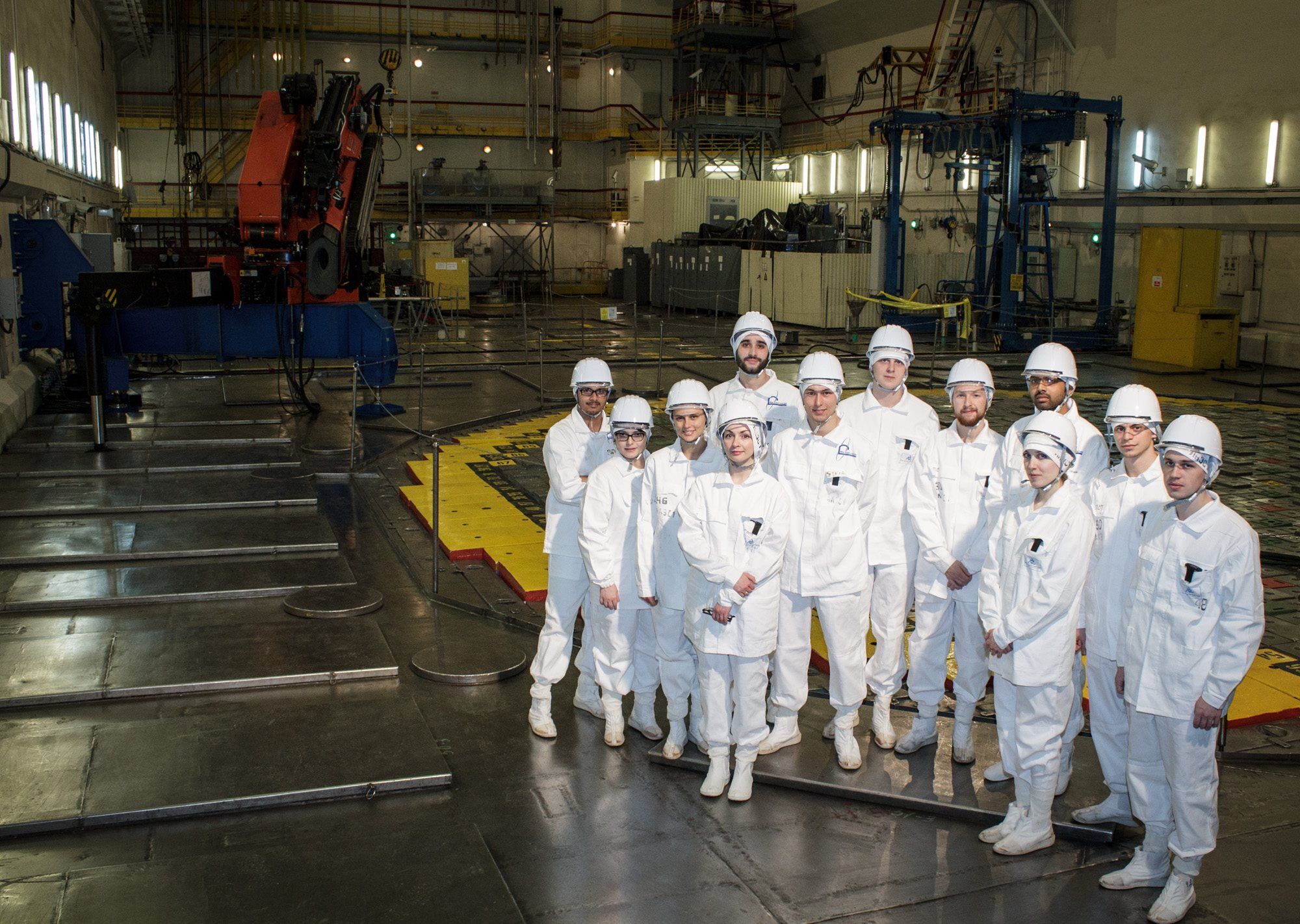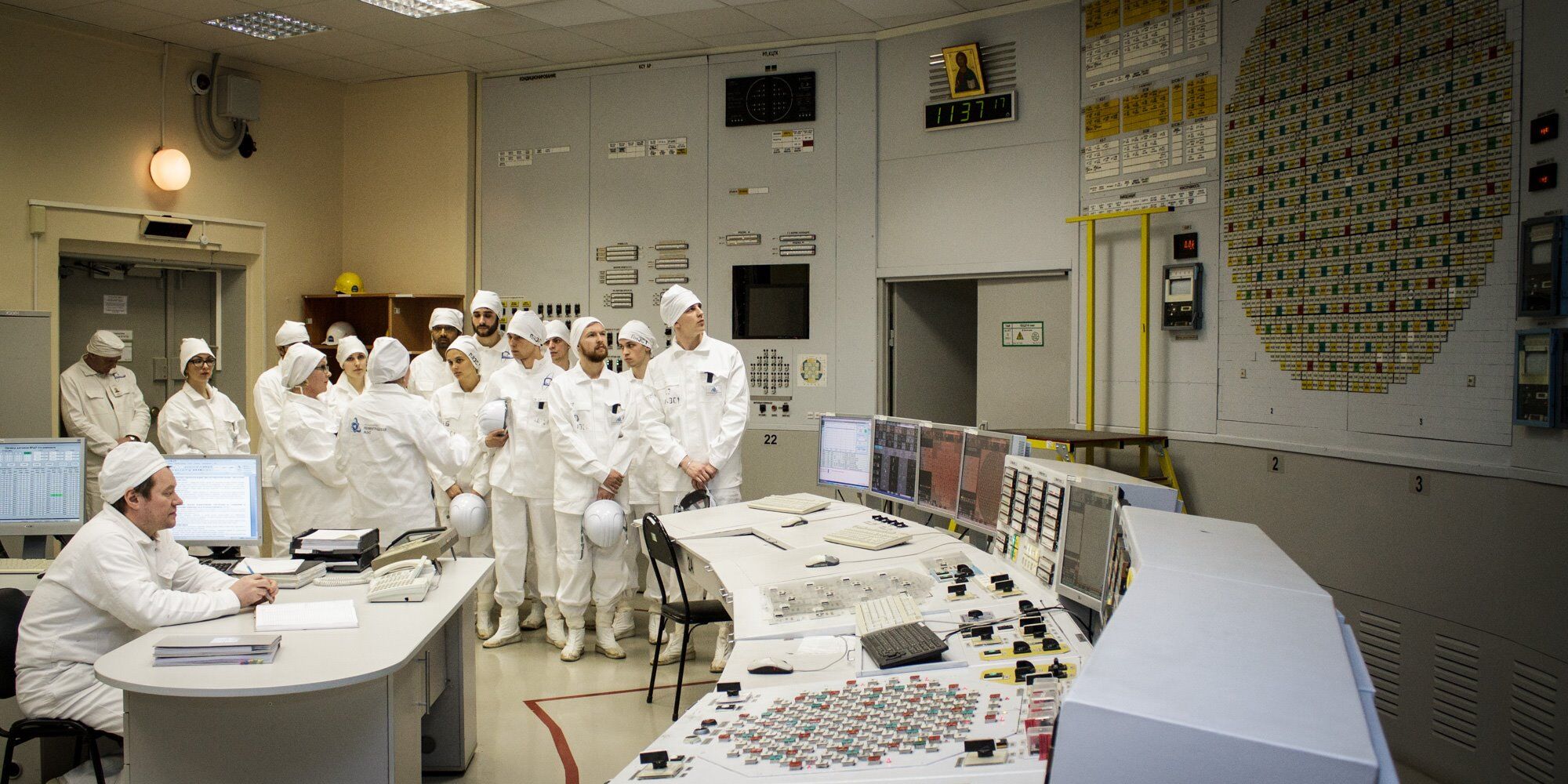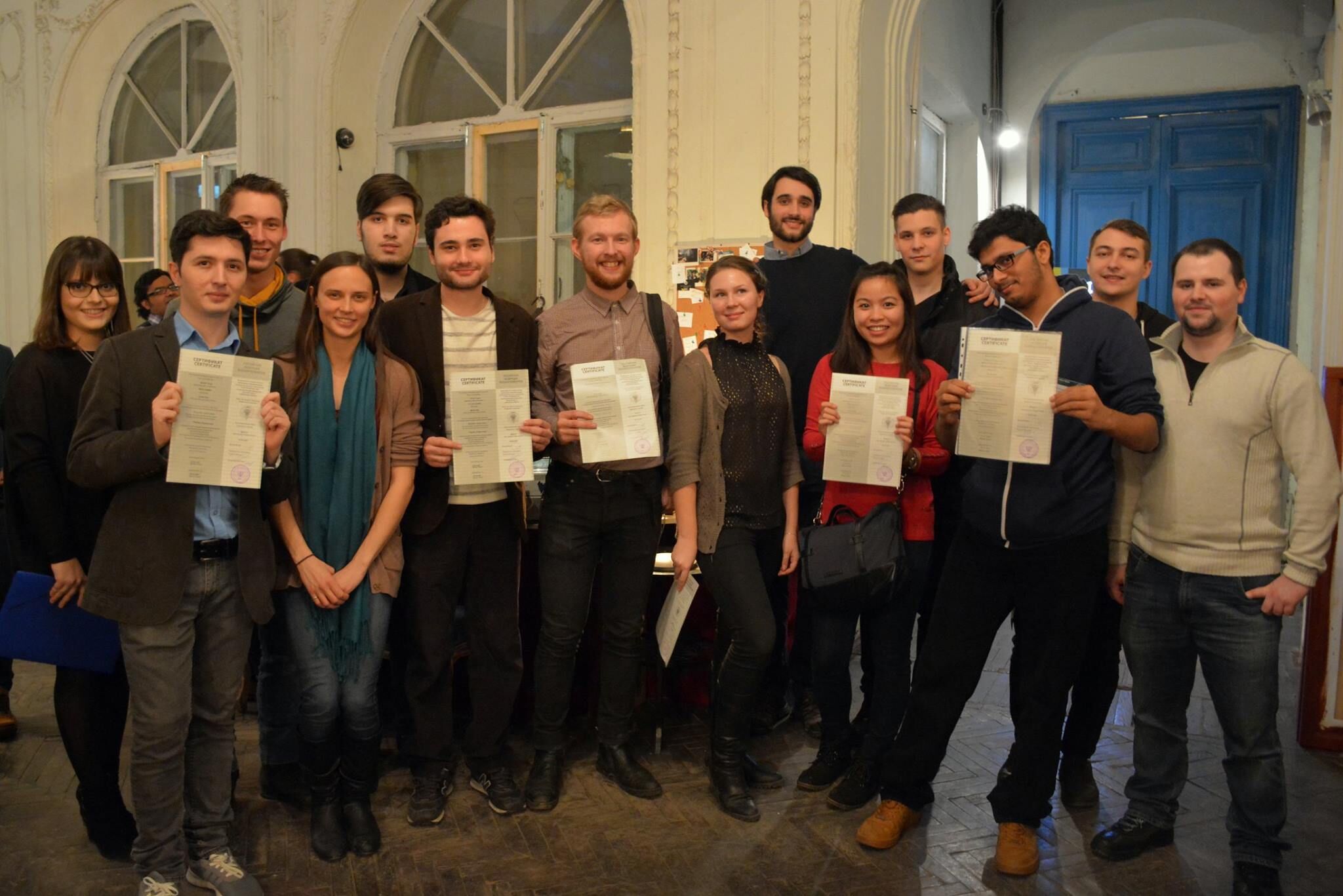ISE Students Attend Saint Petersburg Polytechnic University's Winter School
Andrea Morgan, Anja Kathrin Rueß and Enzo Diependaal complete a two week course on nuclear engineering
 REYKJAVIK, May 6 - At the Iceland School of Energy, there are many opportunities available for graduate students to study abroad. In addition to the exchanges and partnerships established, graduate students have the option to find their own paths and seek their own exchanges. This is exactly what Andrea Morgan, Anja Kathrin Rueß and Enzo Diependaal did when attending Peter the Great Saint Petersburg Polytechnic University's Winter School.
REYKJAVIK, May 6 - At the Iceland School of Energy, there are many opportunities available for graduate students to study abroad. In addition to the exchanges and partnerships established, graduate students have the option to find their own paths and seek their own exchanges. This is exactly what Andrea Morgan, Anja Kathrin Rueß and Enzo Diependaal did when attending Peter the Great Saint Petersburg Polytechnic University's Winter School.
The Winter School at Peter the Great Saint Petersburg Polytechnic University is held by the university's Institute of Energy and Transport Systems. The school is structured as an intensive academic program with lectures, company visits, and workshops from both Russian and international experts.
Interestingly enough, Andrea, Anja and Enzo each discovered the program separately, before applying together. After their submission, the trio received a swift reply the following day. With some planning, preparing VISAs and packing, the three were off to Russia, eager to learn about nuclear energy. Going into the program, everyone had varying levels of familiarity with nuclear energy. Andrea admits,
During the program, Andrea, Anja and Enzo went to lectures in the mornings and afternoons with an hour break in between. According to Enzo,I didn't know much about nuclear power to start, particularly regarding the technical details. You hear such varying opinions on the news, from doomsday forecasts and disasters to praises for low carbon emissions. I'm studying Sustainable Energy Science and even though nuclear is such a controversial and relevant topic, it isn't taught in any real depth at my university... When I saw the opportunity at Saint Petersburg, I had to take it.
As the three recall, they learned about the nuclear fuel cycle, reactor physics, both physical and chemical processing, reactor design, decommissioning, waste management and of course Russian technology. As part of their site tours, the group visited Sosnovy Bor, where students of the summer school saw firsthand a set of RBMK-1000 reactors at Leningrad Nuclear Power Plant (LNPP1). Amazingly, students the students were able to stand on the lid of a reactor as seen below.The atmosphere was great. We were all international students. The networking was great and we made quite a few connections with students And professors equal. In class, the professors started from scratch and took us through all aspects of the nuclear industry. We learned about the entire fuel cycle, from the mining of uranium in to the reactor physics during operation. There was a very good depth to the material with professors as guest lecturers. It was a comprehensive "101" course that you could steer in whatever direction you wanted, providing extra depth as requested.
 In addition the winter school students had the chance to see the construction site of LNPP2, where two VVER-1200 reactors are currently under construction, with an additional two reactors in the planning stages. Below, the students learn about nuclear plant management from within a control center.
In addition the winter school students had the chance to see the construction site of LNPP2, where two VVER-1200 reactors are currently under construction, with an additional two reactors in the planning stages. Below, the students learn about nuclear plant management from within a control center. With the site tours and lectures, each student found their own area of interest while at the summer school. To Anja, the topic of waste (spent fuel) management was of particular interest.
With the site tours and lectures, each student found their own area of interest while at the summer school. To Anja, the topic of waste (spent fuel) management was of particular interest.Indeed, the topic of waste was the most discussed when interviewing the three sustainable energy students. Enzo expresses,From both technical and social aspects, what we as humans do with nuclear waste is not only interesting but critical. It was great that the lectures taught waste management from a broad countries perspective but unfortunately in today's world policies are only on a national perspective, with little cooperation on an international level. A legal and political framework with international policies is in order. Simply put, some countries might be better suited for handling nuclear waste and there is opportunity in this.
To Anja, nuclear seems to be an interim technology - something needed until better technologies are implimented. Nevertheless, she is careful to mention that nuclear should not be demonized either.I hadn't considered decommissioning before this program. I didn't realize how important it was. Take the entire US nuclear fleet for example: it will have to be decommissioned in 40 years and is estimated to cost 8.5 billion USD. It's a comprehensive subject that seems overlooked. And at the end, where do you leave the waste? Our best solution right now is in barrels in the ground.
To Enzo, nuclear energy is indeed sustainable. As he points out, with current developments in technology, it may be possible to power the world on the waste fuel we've already consumed for another 600-800 years. Taking a step back, Andrea points out that,In my opinion, phasing out nuclear when it can be afforded is a good idea. Nevertheless, nuclear experts would still be needed long after the last plants would be shut down to deal with waste and decommissioning.
She adds,Whether or not nuclear is sustainable, it's important that people are educated and well informed on the subject. Nowadays nuclear is a buzzword that scares people. Understandably so - when something goes wrong, it does in a big way. There's no way to get rid of the risk completely but that's true for many things. Education is key. I walked out of this course feeling much safer on nuclear energy.
For Andrea, her take-home lesson was clear. She reflects,Today, reactors are built with passive systems that moderate all aspects of a plant. You can walk off all personnel from a reactor and it will come to a gradual stop. Safety has improved a lot. And the waste? We have 70 years until the waste has to go into deep geological storage. It spends 10 years in wet storage where it is cooled by circulating fluids, followed by dry storage in caskets for another 60 years. In that time, even better ways of handling the waste can be conceived. Not to mention that the amount of waste is minuscule compared to the amount of noxious chemicals and CO2 emitted in creating the same amount of energy from fossil fuels. When considering the effects that we are already seeing from burning fossil fuels, the small chance of nuclear disaster if something goes terribly wrong suddenly doesn't seem so bad. Certainly not as bad as climate change.
All in all, congratulations to Andrea, Anja, Enzo and the rest of the class for completing the 2017 Winter School at Peter the Great Saint Petersburg Polytechnic University!I didn't go into this course with an objective so my opinions were thankfully unbiased throughout; I just wanted to learn more. I think this perspective should be adopted by others. Before people make a decision about where they want their energy to come from, they should really look into it before being swayed by others using scare tactics. If someone is for or against nuclear they should have a solid reason for it. Just be informed. Think rationally about the reasons for your decision and make an informed choice.

